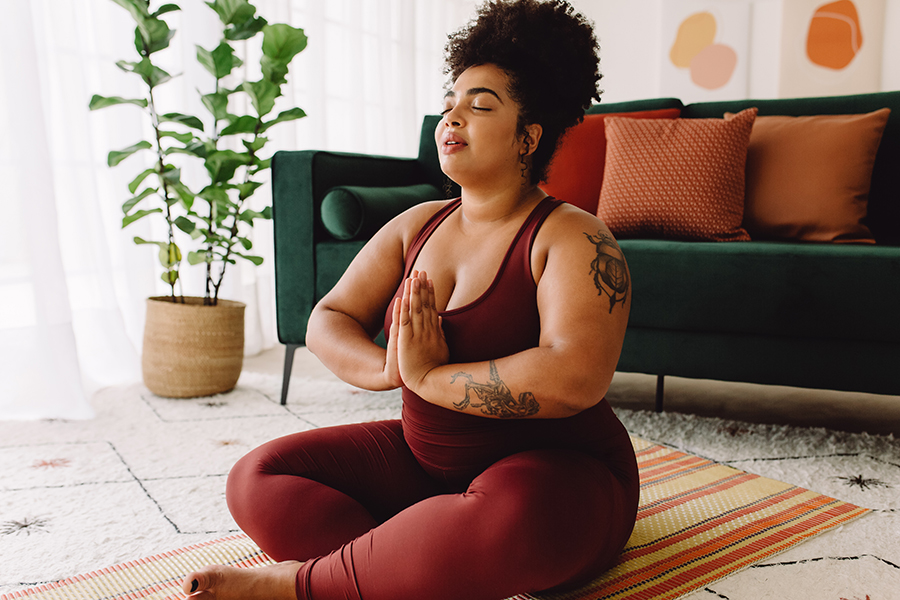Advances in Medicine Are Helping Philly-Area Parents Have Kids Later. Here’s How to Know if You Could Benefit Too

Deciding if and when to have children today is anything but easy. As Millennial and Gen Z parents-to-be navigate the demands of their careers and the high cost of everyday living, it increasingly makes sense to put off that decision, to wait until life feels stable enough to take the next big step. Waiting, however, can come with its own anxieties–namely, will my body be able to support having kids as I age?
That feeling–and specifically, overcoming that feeling–is one reason why a greater and greater number of patients are taking advantage of new technologies to preserve their fertility or their ability to have children as they grow older, particularly in the form of egg and embryo freezing.
“I have definitely seen that anxiety melt away once they know that they’ve got eggs in the freezer,” says Dr. Jenna Kahn, fertility specialist at Main Line Fertility. “It’s something they don’t need to think about any more because they have some level of security, or a hold on their fertility, so they can focus on other important things in their life.”
Dr. Kahn is one of a number of fertility experts in Pennsylvania that are seeing patients come to adopt the new wave of fertility techniques that were developed in the 21st century, and that physicians are now using to meet a growing need. At Main Line Fertility, the largest fertility network in the region, they’ve provided fertility preservation to thousands of patients at six locations across eastern Pennsylvania, and developed a deep understanding of how to best use the technological advancements that are out there to enable more patients to preserve their fertility.
While the question of when to have kids may never be easy, we spoke to these fertility experts to find out when and how you should take advantage of fertility preservation. That way, you won’t spend some of your best (and most challenging) years of your life worrying about the ticking of your biological clock.

Getting Started
The fortunate thing about taking steps toward fertility preservation is that you don’t have to leap in all at once. While fertility starts to significantly decline after age 35, no patient’s fertility is exactly the same, so having an expert check on your specific fertility markers can give you a more accurate estimate of the age that you should seek help.
That’s why Dr. Deanna Brasile, fertility specialist at Main Line Fertility, recommends patients come in early for a fertility check up. This can start as a simple telemedicine appointment, though she does recommend eventually coming into one of Main Line Fertility’s locations for the full appointment. During the check up, she performs an ultrasound to see if there are any indicators that pregnancy may be more difficult for the patient, then checks their current ovarian reserve. If something’s amiss, she might recommend egg or embryo freezing at an earlier age.
Otherwise, for the typical patient, there are a couple things to think about when determining at which age to pursue fertility preservation. The number of children you want to have will be the first factor to consider. As you age, the number of eggs your body has left will decrease. At the same time, the likelihood that any one of those eggs will result in a successful birth goes down. That means that the older you are, the more eggs have to be gathered to increase the odds of a successful birth, while at the same time, your supply is more limited.
“The number you need to freeze increases as you age because the quality declines,” Kahn says. “Between the age of 35 and 39, I might recommend someone freeze 20 to 25 eggs per child they want to have.”
As a result, for patients who want multiple children but who are already in their mid-thirties, they need to act fast to gather as many eggs as possible. Brasile says that, for this reason, she would like to see more women coming to the office for fertility preservation in their late twenties, and it’s rarely too early to consider creating a plan.
“It’s not impossible at 39 to go through another egg retrieval and create embryos now, but it’s clearly a lot better to do it when you’re young,” Brasile says. “And the more eggs that we can get, the more that you can afford to use for freezing purposes, the more secure you’re going to be.”
The other factor to consider is how confident you are that you want kids–and if you want your current partner involved in your future family building goals. Depending on the answer, you might want to approach fertility preservation in one of two ways.

Egg Freezing
When considering fertility preservation, most patients will decide between egg freezing and embryo freezing–it’s just a matter of determining what’s right for you. The key deciding factor may be pretty simple–an egg is unfertilized, so it gives you greater freedom if you are not in a committed relationship with a partner who you would want to involve in family building. And while embryos are more reliable, egg freezing has come a long way in recent years, making it a convenient, low-cost option to maintain your peace of mind when you’re worried about your fertility but haven’t quite made up your mind about the future.
Just make sure the service you go to has the right expertise and experience. The innovative process of rapid vitrification, or quickly freezing your eggs, has brought the success rate of thawing eggs up to 85 percent. But the process is only as good as the fertility expert, so Dr. Brasile recommends you look for a practice that has a significant donor egg program.
“Donor egg programs, in recent years, have really taken off,” Brasile says. “I think that Main Line Fertility has gained a lot of experience in the freezing and thawing of eggs because we have such a large donor egg program, so we’re confident in what works.”
If you have the right provider and you’ve banked the right number of eggs, egg freezing can provide relief from the pressure of having kids at a young age, while still maintaining the ability to choose who the other parent will be down the line. Ultimately, it’s all about flexibility.
“A lot of girls, especially if they’re only 26 or 27 years old, they don’t think they want kids, but they may change their mind later,” Brasile says. “I tell them it’s just your insurance plan, a backup plan in case you need it.”
It’s a critical backup plan to have. In terms of the health of the child, freezing your eggs ensures that there is no increase in the risk of chromosomal abnormalities (which typically increase with age) for the child, whether you’re still in your twenties when you give birth or you’re in your forties. But it’s key to remember that an 85 percent thaw rate is not a guarantee–and maintaining a relationship with your fertility care provider is a good way to better your odds. If you do meet the other parent, or decide to go with a sperm donor, your eggs can be unfrozen, fertilized, and refrozen as embryos, without any damage or additional risk involved.

Embryo Freezing
That’s an important option to keep in mind. The chance of a successful thaw with a frozen embryo, as opposed to a frozen egg, is 99 percent. If you know for sure who your lifelong partner is going to be, then it may be your best option to go ahead and take the embryo route from the start.
This makes particular sense for certain types of parents. For one, if a parent is confident that they’re going to use a sperm donor, they can go ahead and fertilize the egg before freezing, an option that Kahn says many of her patients from the LGBTQ community choose to take.
“I have some same-sex couples that come to see me and know that they’re going to need donor sperm anyway,” Kahn says. “So instead of freezing their eggs, they can just choose a donor now and create and then freeze the embryos.”
Another logical point at which to freeze your embryos is when pursuing in vitro fertilization in your thirties. Since in vitro fertilization already involves creating an embryo, it’s easy enough for a fertility specialist to create multiple embryos and freeze the unused ones. That way, if you want to have more children, you’ll be all set to do so without worrying about a further loss of fertility. Kahn will actually point patients with fertility struggles to IVF in part for this reason.
“For some patients who are coming to me later on in their reproductive window, I might counsel them to pick doing IVF as their initiating treatment option,” Kahn says. “It could help them get pregnant now, but also provide excess embryos and act as fertility preservation for them for kid number two and kid number three.”
Even for younger patients who prefer the flexibility of egg freezing, Brasile will sometimes recommend fertilizing just half with donor sperm–that way, you can be as confident as you can be that, if all else fails, you have a reliable fallback.
“And if you do meet Mr. Right, and you want to have the baby with him, we can still do that,” she says.
Altogether, as long as you keep up a conversation with a fertility specialist, choosing whether to have children, or even choosing whether to freeze your eggs or embryos, doesn’t have to be a difficult decision. Just have the conversation early, and you can always adapt your solutions as your life plans change (which they inevitably do). No matter what your fertility plan looks like, it’s all about easing your anxiety about the future, and having children if and when it’s right for you.
“In the end, you may not need these eggs or embryos. You might decide that you don’t want kids. Or you might decide that you’re going to try on your own for a while and then get pregnant,” Brasile says. “And lo and behold, you have your family and you don’t need those eggs. What’s really important to remember is they’re just your backup insurance plan. If you don’t want them or you don’t need them, it’s okay.”
This is a paid partnership between Main Line Fertility and Philadelphia Magazine


